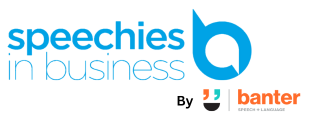Unlike many of our fellow allied health professionals, speech pathologists aren’t registered health practitioners in Australia. If we want to be respected in the same way as physiotherapists and occupational therapists – and I think we do – we need to be at least as professional as the regulated health professions.
Regulated health practitioners, like OTs and physios, are subject to Codes of Conduct on various matters, including advertising.
The good news is that Speech Pathology Australia (SPA) has implemented its Code of Ethics-Advertising Policy (3.03), which in many ways brings speech pathology advertising rules into line with the standards applied to registered health professionals. Helpfully, SPA has also published some FAQs to explain some of the measures.
The bad news is that, since the rules came into force on 1 July 2015, we all have to do a bit of work to make sure we comply and stay compliant.
I completed my compliance audit after the introduction of the rules, and wanted to share some specific steps I took to comply with the rules.
1. Yank those testimonials
Why: testimonials are subjective, inherently anecdotal, easy to make up and to quote selectively, and hard to verify independently. They’re also manipulative: they’ve been shown to persuade people to buy stuff they don’t need. They’re a staple of self-improvement workshops and the home shopping channel for that very reason. They have no legitimate place marketing health services to vulnerable people with health needs – especially people with communication problems.
I have never used testimonials on my website or elsewhere. But I had allowed some clients and friends to rate me on Facebook. I had to delete those – which was a bit tricky – for some reason, I couldn’t delete the review function without losing my map on Facebook which was annoying to say the least. I have also now changed my website comments function so I get a chance to moderate comments before they are posted.
2. Ditch any “specialist” claims
Why? In Australia, the speech pathology profession doesn’t yet recognise any categories of specialist practitioners. In professions like medicine and law, you can become a specialist. But it takes lots of work and involves proving your expertise through a recognised accreditation process. Here’s what that looks like for lawyers in New South Wales, Australia.
Unless and until similar measures are introduced for speech pathologists, it’s misleading and deceptive to claim you are a specialist.
You can say you have lots of experience working with particular kinds of clients. You can say you have a special interest in helping people with specific speech pathology needs. But you’re not a specialist (e.g. you can’t call yourself a specialist paediatric speech pathologist).
I searched my blog and social media profile for anything that might suggest I claimed to be a specialist. When in doubt, I deleted the offending content.
3. Monitor what others say about you
This all sounds a bit paranoid. And I don’t really care that much about what people say about me.
But I don’t have a choice anymore. Why? I’ve got the ability to moderate and edit comments. I have a professional obligation to delete testimonials on platforms under my control. I have a legal obligation to avoid misleading and deceptive conduct – including false claims.
To mitigate my risk here, I now moderate all comments on my blog, and monitor social media comments and mentions daily (except Sundays). I now have a social media policy to cover staff conduct. I’ve also implemented house rules on my business Facebook page, which clearly set out my expectations of people interacting with the page (including the “no testimonials” rule). Finally, and as much as I hate vanity Googling, I’ve set up a Google name alert for my clinic and name to monitor comments made in places outside my control.
4. Tear up those discount vouchers, gift cards and coupons
Why? They encourage people to use your service, even if they don’t need it. And they’re tacky.
I don’t advertise with vouchers or gift cards – mainly because I think they come across as cheap and nasty, so I didn’t need to change my practice here. But I am going to think more about whether my future sponsorships of local events, e.g. school events that could be perceived as encouraging over-use of my service. I don’t think I have an issue – I tend to just hand over money in return for being listed in the list of sponsors, but it’s something I’ll review with each sponsorship arrangement.
5. Re-think the qualifications you cite when marketing services
B.Bus (Accounting), LLB (Hons.), MSLP, MSPA, CPSP, NP, MANZCN, Solicitor of the High Courts of Australia and Hong Kong…
My full qualifications are a bit of a mouthful and many of them have no direct relevance to speech pathology.
So I don’t use them all when I’m marketing speech pathology services. Instead, I go with SPA’s recommendation: David Kinnane, MSLP, MSPA, CPSP. Full stop.
Image: https://bit.ly/1MyjdyL
